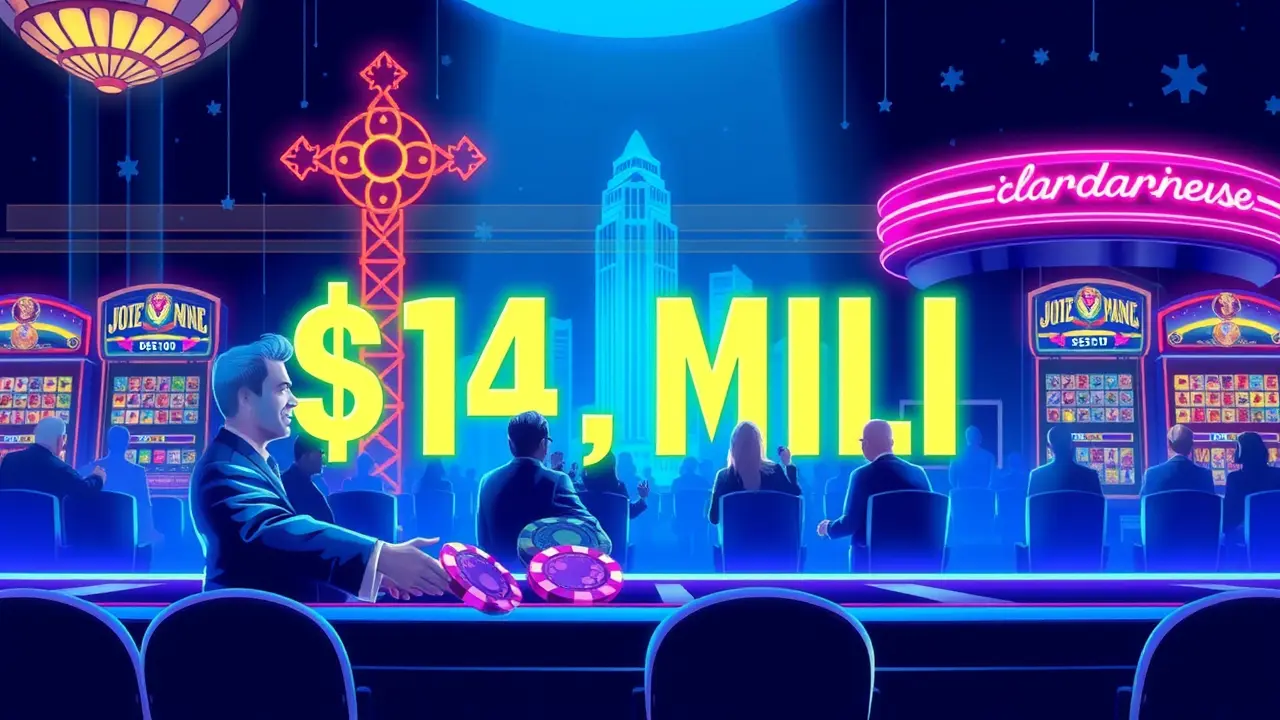Billionaire Governor Wins $1.4 Million in Las Vegas.
In a turn of events that feels ripped from a Hollywood script, billionaire Governor JB Pritzker, already a figure of immense wealth and political power, casually scooped up a cool $1. 4 million during a Las Vegas holiday with friends and family, a windfall that, for most, would be life-altering but for him likely registers as a noteworthy anecdote.This isn't just a simple story of a lucky break; it's a fascinating prism through which to view the ever-widening chasm between the ultra-wealthy and everyone else, a world where a seven-figure win is a pleasant diversion rather than a transformative event. Pritzker, an heir to the Hyatt hotel fortune with an estimated net worth dancing around $3.5 billion, could theoretically lose this entire sum and it would be a mere blip on his financial radar, a rounding error in a portfolio so vast it's difficult for the average person to comprehend—it’s the equivalent of someone with a net worth of $100,000 finding an extra forty bucks in their winter coat pocket. The sheer scale of modern billionaire wealth operates on a different plane of existence, where risk and reward are abstract concepts, and this Las Vegas episode underscores that reality with almost comical clarity.Imagine the scene: the ringing of slot machines, the hushed intensity of the high-roller tables, and a governor, ostensibly on a break from the pressures of public service, engaging in what for him is a form of high-stakes entertainment, a world away from the budget negotiations and policy debates of the statehouse. This incident inevitably invites comparisons to historical figures of great wealth, from the Gilded Age titans like Rockefeller and Carnegie, who arguably at least built tangible industrial empires, to today's asset-rich inheritors and tech magnates whose fortunes are often more ethereal, tied to stock valuations and digital marketplaces.What does it mean for a sitting governor, a person tasked with crafting economic policy that affects millions of citizens struggling with inflation and stagnant wages, to publicly engage in such conspicuously extravagant leisure? The political optics are a minefield, a gift to opposition researchers and a potential narrative nightmare, framing him as out of touch with the very constituents he serves, a modern-day Marie Antoinette, albeit one who won his cake rather than merely suggesting others eat it. We must also consider the psychology of gambling at this stratospheric level; for Pritzker, the adrenaline rush isn't about potentially paying off a mortgage or funding a college education—it's about the game itself, the validation of a win, the social performance of wealth among peers.Expert commentary from behavioral economists would likely point to the diminished marginal utility of money, where each additional dollar brings less and less satisfaction, making a $1. 4 million win more of a psychological trophy than an economic necessity.Furthermore, the broader context of Las Vegas as a city built on the foundation of calculated loss comes into sharp relief; the casinos are designed for the house to always win in the long run, but for a player with virtually limitless resources, the long run is an almost meaningless concept—he can afford to play a losing game indefinitely until variance swings in his favor, a luxury inaccessible to 99. 9% of the population.This story also opens up a nuanced discussion about wealth, luck, and meritocracy. Pritzker's initial fortune was largely inherited, a product of birth lottery luck, and this recent windfall adds another layer of fortuitous circumstance, challenging the narrative of the self-made man that is so central to American mythology.The possible consequences are more reputational than financial; will this be a fleeting headline, or will it become a potent symbol in future political campaigns, used to paint a picture of a leader disconnected from the economic anxieties of everyday life? Analytically, this event is a tiny data point in the larger trend of the increasing social and financial isolation of the billionaire class, a group that vacations, socializes, and even gambles in a rarefied ecosystem invisible to the mainstream. It begs the question: in a democracy, what is the social contract between those who govern and those who are governed, especially when the former exists in a financial universe so radically different from the latter? The $1. 4 million win is, on its surface, a trivial piece of news, but when you dive deeper, it reveals profound and unsettling truths about power, privilege, and the perception of reality at the very top of the economic pyramid.
It’s quiet here...Start the conversation by leaving the first comment.
